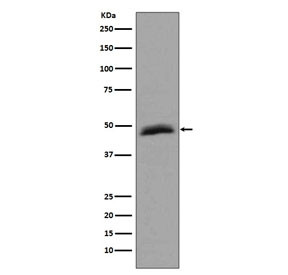Cookie preferences
This website uses cookies, which are necessary for the technical operation of the website and are always set. Other cookies, which increase the comfort when using this website, are used for direct advertising or to facilitate interaction with other websites and social networks, are only set with your consent.
Configuration
Technically required
These cookies are necessary for the basic functions of the shop.
"Allow all cookies" cookie
"Decline all cookies" cookie
CSRF token
Cookie preferences
Currency change
Customer-specific caching
FACT-Finder tracking
Individual prices
Selected shop
Session
Comfort functions
These cookies are used to make the shopping experience even more appealing, for example for the recognition of the visitor.
Note
Show the facebook fanpage in the right blod sidebar
Statistics & Tracking
Affiliate program
Conversion and usertracking via Google Tag Manager
Track device being used

| Item number | Size | Datasheet | Manual | SDS | Delivery time | Quantity | Price |
|---|---|---|---|---|---|---|---|
| NSJ-RQ4718 | 100 µl | - | - |
3 - 10 business days* |
755.00€
|
If you have any questions, please use our Contact Form.
You can also order by e-mail: info@biomol.com
Larger quantity required? Request bulk
You can also order by e-mail: info@biomol.com
Larger quantity required? Request bulk
Antibody in PBS with 0.02% sodium azide, 50% glycerol and 0.4-0.5mg/ml BSA. The protein encoded... more
Product information "Anti-Aurora-A / AURKA, clone DIH-1"
Antibody in PBS with 0.02% sodium azide, 50% glycerol and 0.4-0.5mg/ml BSA. The protein encoded by the AURKA gene is a cell cycle-regulated kinase that appears to be involved in microtubule formation and/or stabilization at the spindle pole during chromosome segregation. The encoded protein is found at the centrosome in interphase cells and at the spindle poles in mitosis. This gene may play a role in tumor development and progression. [RefSeq] Protein function: Mitotic serine/threonine kinase that contributes to the regulation of cell cycle progression (PubMed:26246606, PubMed:12390251, PubMed:18615013, PubMed:11039908, PubMed:17125279, PubMed:17360485). Associates with the centrosome and the spindle microtubules during mitosis and plays a critical role in various mitotic events including the establishment of mitotic spindle, centrosome duplication, centrosome separation as well as maturation, chromosomal alignment, spindle assembly checkpoint, and cytokinesis (PubMed:26246606, PubMed:14523000). Required for normal spindle positioning during mitosis and for the localization of NUMA1 and DCTN1 to the cell cortex during metaphase (PubMed:27335426). Required for initial activation of CDK1 at centrosomes (PubMed:13678582, PubMed:15128871). Phosphorylates numerous target proteins, including ARHGEF2, BORA, BRCA1, CDC25B, DLGP5, HDAC6, KIF2A, LATS2, NDEL1, PARD3, PPP1R2, PLK1, RASSF1, TACC3, p53/TP53 and TPX2 (PubMed:18056443, PubMed:15128871, PubMed:14702041, PubMed:11551964, PubMed:15147269, PubMed:15987997, PubMed:17604723, PubMed:18615013). Regulates KIF2A tubulin depolymerase activity (PubMed:19351716). Important for microtubule formation and/or stabilization (PubMed:18056443). Required for normal axon formation (PubMed:19812038). Plays a role in microtubule remodeling during neurite extension (PubMed:19668197). Also acts as a key regulatory component of the p53/TP53 pathway, and particularly the checkpoint- response pathways critical for oncogenic transformation of cells, by phosphorylating and destabilizing p53/TP53 (PubMed:14702041). Phosphorylates its own inhibitors, the protein phosphatase type 1 (PP1) isoforms, to inhibit their activity (PubMed:11551964). Inhibits cilia outgrowth. Required for cilia disassembly via phosphorylation of HDAC6 and subsequent deacetylation of alpha-tubulin (PubMed:17604723, PubMed:20643351). Regulates protein levels of the anti-apoptosis protein BIRC5 by suppressing the expression of the SCF(FBXL7) E3 ubiquitin-protein ligase substrate adapter FBXL7 through the phosphorylation of the transcription factor FOXP1 (PubMed:28218735). [The UniProt Consortium]
| Keywords: | Anti-ARK-1, Anti-Aurora 2, Anti-Aurora kinase A, Anti-Aurora-related kinase 1, Anti-Aurora/IPL1-related kinase 1, Anti-Breast tumor-amplified kinase, Anti-Serine/threonine-protein kinase 6, Anti-Ipl1- and aurora-related kinase 1, Aurora-A Antibody / AURKA |
| Supplier: | NSJ Bioreagents |
| Supplier-Nr: | RQ4718 |
Properties
| Application: | WB |
| Antibody Type: | Monoclonal |
| Clone: | DIH-1 |
| Conjugate: | No |
| Host: | Rabbit |
| Species reactivity: | human |
| Immunogen: | A synthetic peptide specific to human Aurora A / AURKA |
| Format: | Purified |
Database Information
| KEGG ID : | K11481 | Matching products |
| UniProt ID : | O14965 | Matching products |
| Gene ID | GeneID 6790 | Matching products |
Handling & Safety
| Storage: | -20°C |
| Shipping: | -20°C (International: -20°C) |
Caution
Our products are for laboratory research use only: Not for administration to humans!
Our products are for laboratory research use only: Not for administration to humans!
Information about the product reference will follow.
more
You will get a certificate here
Viewed




